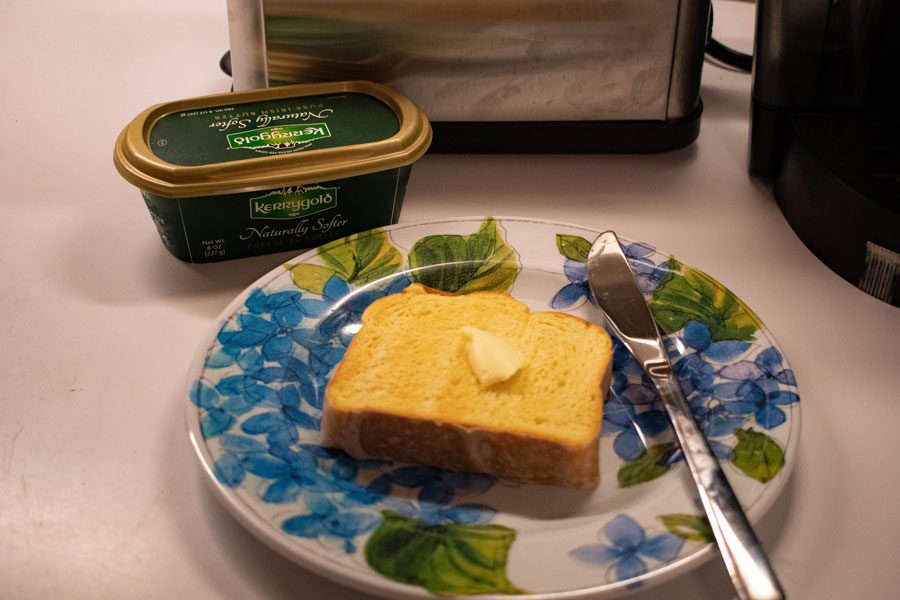Tariffs hit Kerrygold, an Irish butter company with Evanston offices
October 21, 2019
No luck for the Irish: Kerrygold, a Dublin-based butter company with offices in Evanston, is reeling from a recently imposed 25 percent tariff that affects a variety of European domestic and agricultural products.
A World Trade Organization ruling, which the Office of the United States Trade Representative calls “the largest arbitration award in WTO history,” allocated the United States $7.5 billion in tariffs on European products. The ruling, which President Donald Trump said during a press conference was “a big win for the United States,” ends a 15-year legal battle against European Union Airbus subsidies, which the WTO ruled illegal.
Kerrygold — the second most popular butter brand in the United States, according to a Bloomberg Article — has a head office in Evanston, which is responsible for the North American sales and marketing of its butter. The company said in an email to The Daily that the tariff, which took effect last Friday, will disrupt Kerrygold’s business.
“If this tariff cost cannot be recovered in the market, it will negatively impact our supply chain,” Kerrygold wrote in the email. “In anticipation of the WTO’s decision, we have been preparing our businesses by having appropriate risk mitigation measures in place.”
Tariffs are a tax that can be paid either by foreign producers or by domestic consumers, said Economics Prof. Martin Eichenbaum. According to Eichenbaum, the price difference can seem small to large entities. But the shift may be one that lower-income individuals may not be able to afford.
“Tariffs always benefit a few people intensely, and hurt many people by a little,” Eichenbaum said. “The few people who benefit fight viciously for them. The people who just get hurt by a little bit don’t run to the ramparts. So it’s always easier politically to give to the few who are passionate than the broad-based electorate, who are just getting hurt by a little bit. But if you integrate over everybody, they’re really getting hurt by a lot.”
Economics Prof. Mark Witte said the tariff will likely cause Kerrygold to raise prices, triggering a consumer shift from Irish-produced butter to domestic companies such as Land O’Lakes. The tariffs, Witte said, are a political strategy to benefit American farmers and charm domestic dairy producers to the current administration.
According to the FRED economic research database, milk and butter prices are much lower than they were five years ago. The tariff likely has local farmers “thrilled,” Eichenbaum said, because the upper-Midwest dairy industry is depressed.
Eichenbaum said the current administration has imposed tariffs under the assumption that American companies will ramp up production. However, Eichenbaum said production does not have much room for growth, because the unemployment rate in the United States is so low.
Witte said damage to consumers is far greater than gains from any domestic jobs that the tariff creates.
“For the most part,” Witte said, “economists think this was really poor policy.”
Email: [email protected]
Instagram: @maiaspoto



